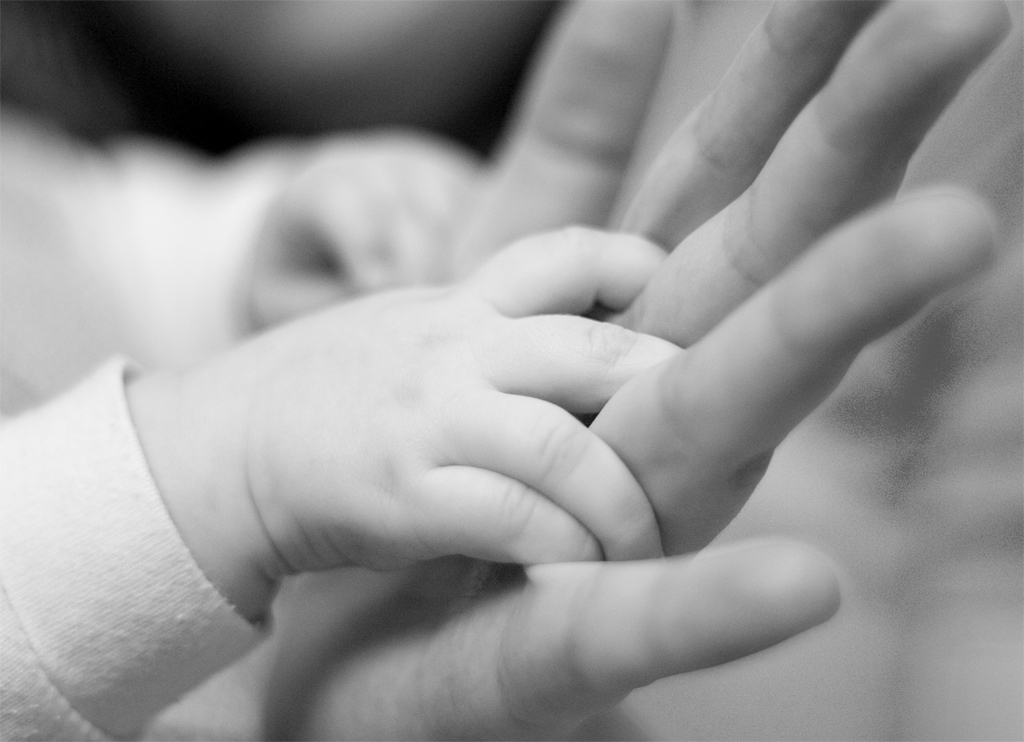I wanted to discuss an experience I had in the newborn nursery. I was assigned to Baby K—a small baby girl who was delivered by emergent cesarean section because her mother abused cocaine during her pregnancy. Looking through Baby K’s chart, an unsettling feeling came over me. This was one of the first times I directly saw how a mother’s behavior impacted her child. Before this, all my clerkships had dealt with adults who were responsible for their own health. Seeing an innocent newborn enter this world with a disadvantage because of her mother’s actions was disheartening.
With this in mind, I went to talk to Mother K the next morning. The chart stated Baby K was going to be given to her great-grandmother, and I needed to confirm this information. I could immediately tell that Mother K was upset when I asked her to confirm. She said, “Yes, she’s going to her great-grandma, but I’m still going be involved! I’m NOT giving up on her!” I realized that just asking the question caused her emotional pain. Especially since the social worker, the nurse, and probably several others, had also asked this question. She again assured me that she loved Baby K, but that she just needed to get her life together before she could care of her. After talking more to Mother K, I realized she was trying her best.
This experience opened my eyes to my perception of patients. After browsing Mother K’s chart and reading that she continued to abuse cocaine while pregnant and was planning on giving Baby K to another caretaker, I may have made the assumption that she didn’t want anything to do with Baby K at all. This assumption may have been reflected in the way I asked her questions, leading her to become distraught. Many patients, especially those who suffer from substance abuse, have lost complete control over their actions. Their mind is controlled by an addiction, and they need help before they can take care of others. After talking more with her, I learned that Mother K actually planned to enroll herself in a treatment center that has housing. After getting better, she yearned to resume care of Baby K. These are details that were never mentioned in any notes, but if they had been mentioned, may have altered my first impression of Mother K before I met her. I also learned that Mother K continued to use cocaine during her pregnancy because she didn’t realize its impact on Baby K. She used cocaine during her prior pregnancy with her older son, and he remained “normal and healthy.” Even though we, as medical professionals, can understand how abusing cocaine during pregnancy is directly detrimental to the fetus, many individuals may not understand this basic concept of maternal-fetal physiology. We thought Mother K’s use of cocaine was due to her lack of care for Baby K, when in reality it was fueled by her lack of knowledge.
The most important lesson I learned was not to judge patients based on chart review alone. I know this seems like “common sense,” but it can be easy to jump to certain perceptions after reading the tone of some of the notes in a patient’s chart. My goal in the future is to enter every patient’s room with a blank slate. Our duty has always been to provide the same quality of care for all patients, regardless of their actions or beliefs, but sometimes we let our feelings get in the way of this duty. I have struggled with this in pediatrics more than I have in any other specialty. When I talk to parents who are willing to move mountains for the health of their children, I feel endearment towards them. There is nothing stronger or more special than a parent’s love. In contrast, with parents like Mother K, it is easy to become frustrated. After examining Baby K, I kept thinking about her fragile little arms and small shrunken head. Baby K may grow up to have health consequences that could have easily been prevented. All I can do is allow this experience to shape future patient encounters. I’m going to try to place myself in each parent’s situation and ask myself: what information or advice would I find the most helpful right now? At the end of my time with Mother K, I gave her a tight hug—I’m rooting for her. I hope she is able to complete her treatment and be reunited with Baby K soon.
Photo credit: Weird Beard

